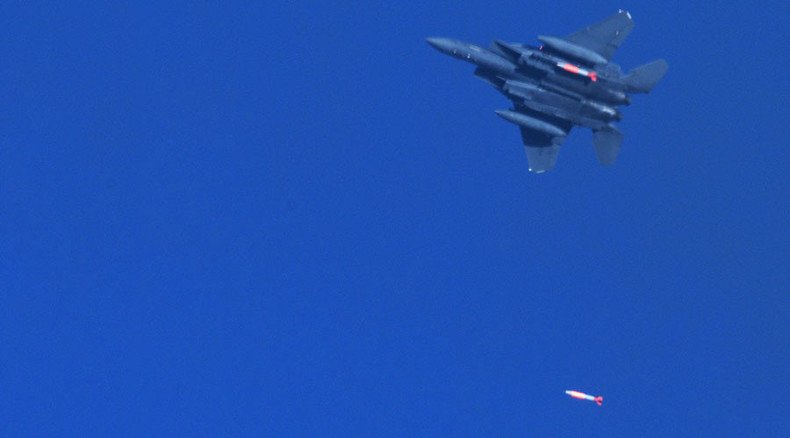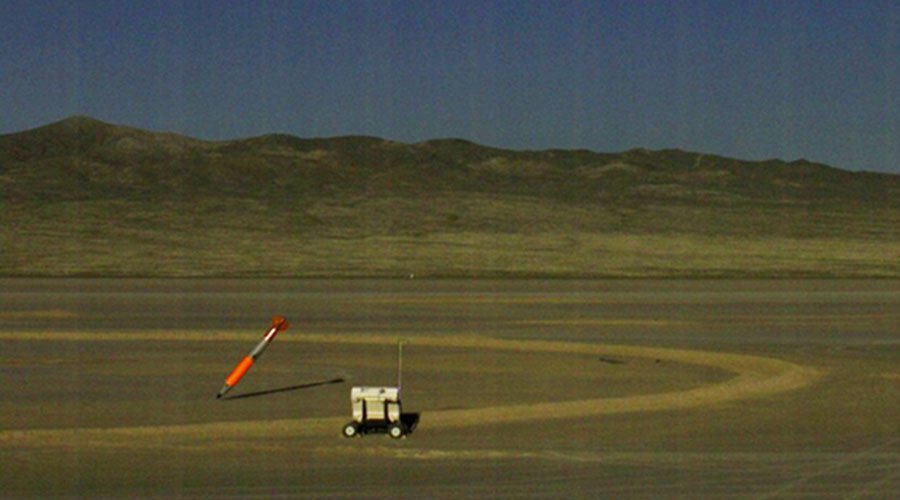US successfully tests nuclear gravity bomb in Nevada following $8bn upgrade

The US launched a third flight test of the newly upgraded B61-12 nuclear gravity bomb, which it says shows the nation's “continued commitment to security.” The launch was completed by the US Air Force and the National Nuclear Security Administration (NNSA).
The launch, which took place at Tonopah Test Range in Nevada on October 20, 2015, “provides additional evidence of the nation's continued commitment to our nation's security and that of our allies and partners,” NNSA Deputy Administrator Madelyn Creedon said in a statement Monday.
She added that “this demonstration of effective end-to-end system performance under representative delivery conditions marks another 2015 achievement in the development of the B61-12 Life Extension Program.”

Although the B61-12 is a nuclear gravity bomb, the test flight contained “representative non-nuclear components but no highly enriched uranium or plutonium, consistent with test treaty obligations,” the statement said.
According to the NNSA, an F-15E from Nellis Air Force base released the B61-12, which “demonstrated successful performance in a realistic guided flight environment.” It added that “all scheduled activities occurred successfully” and “telemetry and video data were properly collected.”
The launch was the last of three flight tests for the B61-12 Life Extension Program (LEP), which is aimed at repairing or replacing components of nuclear weapons to “ensure the ability to meet military requirements.” The first test of the B61-12, which has been in use since the Cold War, took place in July.
‘We are ready for Kim’: Pentagon says N. Korean nuclear warhead can reach US http://t.co/UWFrZQw3cIpic.twitter.com/0b81CGjpqg
— RT (@RT_com) October 8, 2015The NNSA states on its website that the Life Extension Program, which was launched in February, allows it to maintain a credible nuclear deterrent without producing new weapons or conducting new underground nuclear tests. Life extension efforts are intended to extend the lifetime of a weapon for an additional 20 to 30 years.
But the B61-12's $8 billion upgrade has sparked debate between anti-proliferation advocates and Washington over whether the newly improved bomb is actually a new weapon, and therefore a violation of President Obama's position of not making new nuclear weapons. However, the NNSA maintains that the nuclear weapon will have no more capabilities than previous B61 weapons, and will not be GPS-guided.
Established by Congress in 2000, NNSA is a semi-autonomous agency within the US Department of Energy, which is responsible for “enhancing national security through the military application of nuclear science.”












